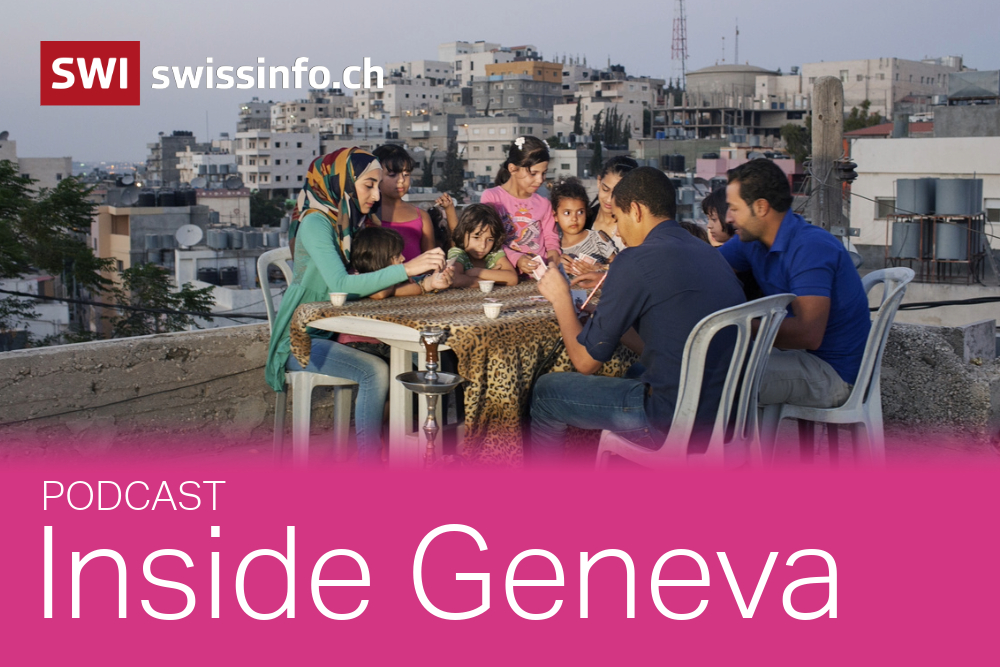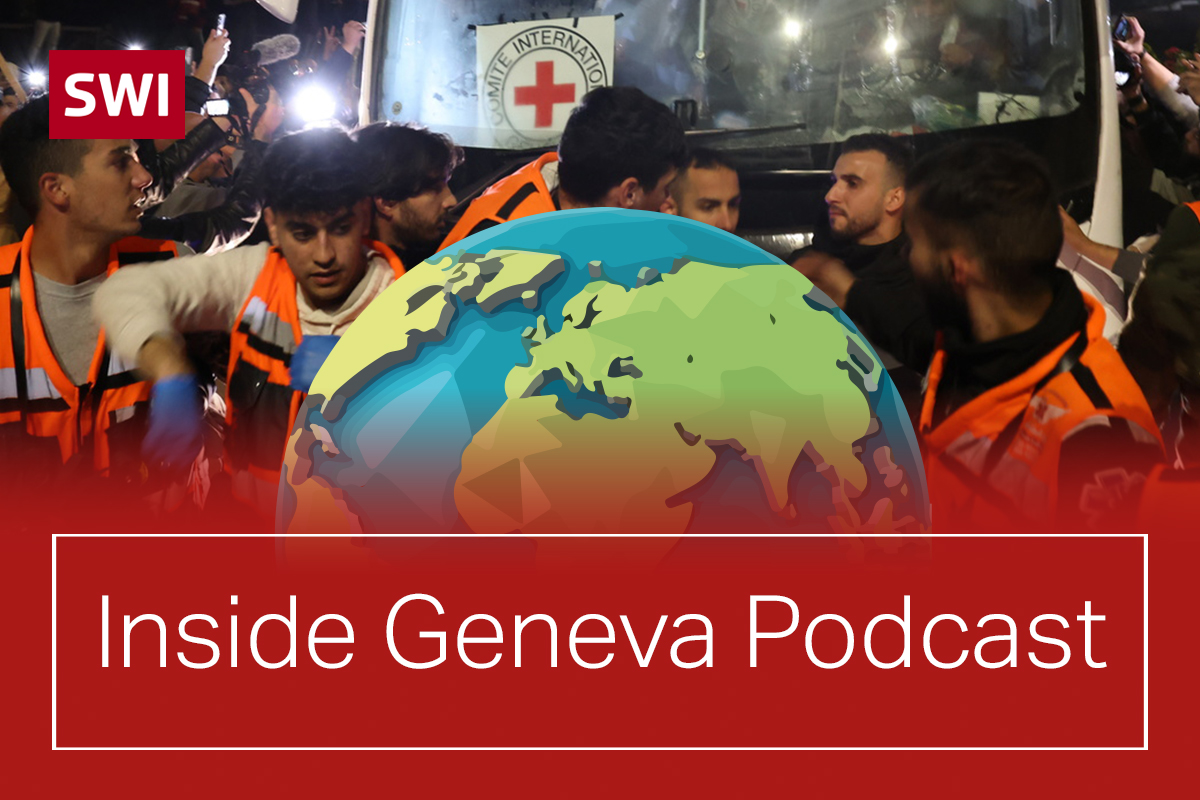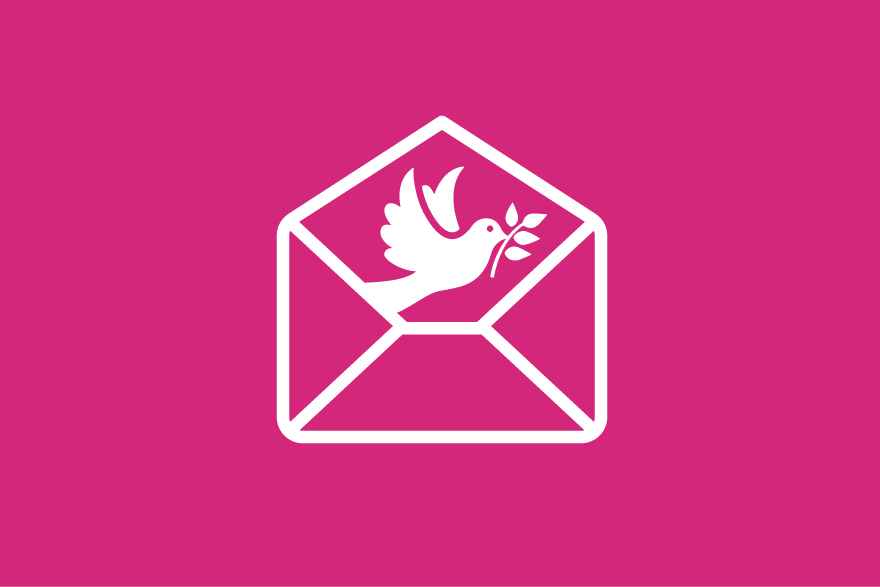Love for life in Gaza – and human rights at COP29
It’s time for another episode of our Inside Geneva podcast, and this week we’ve got two in-depth discussions for you. The first is with the editors of a new book called Daybreak in Gaza.
When a place is at war, it’s very often the case that that is all we know about it. We see the daily bombings and rocket attacks and the numbers of killed or displaced are tallied up. Very often, and certainly now with Gaza, the images on our TV screens are so shocking that we begin to turn away.

More
Inside Geneva: life in Gaza and COP29
How much do we really know about Gaza? We know about the current brutal conflict, the destroyed towns and the tens of thousands dead. Most of us know Gaza has been blockaded by Israel for 18 years. We know, of course, that on October 7 last year, some people from Gaza carried out a horrific attack on Israelis. But what about everything else? The things that, over decades, made Gazans love their home like we love ours?
+ Listen and subscribe to the latest episodes of Inside Geneva here
Daybreak in Gaza is an attempt to enlighten us with personal stories from the people who live there, of their everyday lives, their history, culture, food, music and, now, the tragic loss of much of that. The book is edited by Mahmoud Muna, a Palestinian whose family run two famous bookstores in Jerusalem, and Matthew Teller, a journalist specialising in the Middle East, with the assistance of Juliette Touma, who is communications officer for the United Nations (UN) agency for Palestinian refugees, UNRWA.
All three of them joined me on Inside Geneva to talk about the book. Mahmoud tells us that, at the start of this year, he wanted to do something to preserve a memory of life in Gaza. He also confesses that he wants, 20 years from now, to be able to tell his daughters he did something to mitigate this terrible conflict.

More
Eyewitness in a Gaza hospital and defending human rights defenders
The book offers us a rich, sometimes funny, often tragic, picture of life in the Strip. There is the old man, remembering his childhood catching fish by the sea. The younger woman remembering the job she loved and her evening visits to the gym. She has now been displaced multiple times and lacks even the basics – women’s sanitary products are among the things that rarely get into Gaza these days.
There are accounts of Gaza’s tradition of embroidery and descriptions of its delicious falafels. There is the young man, before this conflict, but after the blockade, frantically negotiating Israeli checkpoints to get to his sister’s wedding in Gaza – carrying her beloved pet cat.
And there is the child today in Rafah, selling people the chance to see themselves in a sliver of mirror he has found. Some, after a year of conflict, weep when they see themselves.

More
International Geneva
It’s a book that will make you laugh and cry. Despite the regular communications blackouts and the constant bombing, the contributors were astonishingly determined to share their stories, as Muna tells us.
“People are actually travelling in the middle of a war, in the middle of Gaza at midnight – the peak of the risk, if you like – to get somewhere where they can get a better internet so they can actually talk to us,” says Mahmoud.
Perhaps surprisingly, there is little obvious mention of politics in the book. No fervent enthusiasm for Hamas, no violent hatred of Israel. A life of blockades and harassment is something, you sense, that Gazans have got depressingly used to.
“It’s not a football game,” says Touma. “This is about our humanity and it’s about being able to sympathise with people wherever they are. This is not about taking sides. It’s about whether we’re human or not.”
Showing that human side, making a record of their culture, history and identity, is something the book’s contributors are determined to do. Teller explains: “The people of Gaza, like people everywhere, have voices. The point of this book is not to give a voice; the point of this book is to amplify the voices of the people who are not being listened to.”
Questions about COP29
In the second half of this week’s Inside Geneva, we take a long, hard look at the concerns human rights groups have over the UN’s upcoming annual Climate Change Conference (COP29), which is being held in Baku, Azerbaijan this year.
It’s not the first time the UN has held the conference in a major oil and gas producer – last year it was held in the United Arab Emirates, and the year before, in Egypt. These are also, human rights groups say, countries with very questionable human rights records.
Giorgi Gogia, associate director of the European Central Asia Division at Human Rights Watch (HRW), reminds us that Azerbaijan has been working hard in recent years to establish itself on the global stage – hosting Eurovision, Formula One and now COP29.
“Azerbaijan tries to be an international player with global standing,” he tells Inside Geneva. “It strives to attract international attention, and it wants to host such events, and there’s nothing wrong with that. The important thing is, if you want to play in that league, you have to observe fundamental rights; you have to observe the rules of the game.”
That is where, human rights groups say, Azerbaijan is failing. “Dozens have been arrested in the months leading up to COP29, including journalists, civil society activists, and NGO leaders,” says Gogia.
So, should COP29 not go to Azerbaijan at all? HRW doesn’t go as far as to say that, but Gogia and his colleagues do think the UN should use this very public moment in the global spotlight to push Azerbaijan for reform. The UN’s host country agreement – a document it draws up with all countries hosting a global UN summit – has not been published, but rights groups like HRW have seen a leaked copy and fear it contains very risky loopholes.
For instance, says Gogia, “the agreement states that while conference participants ‘shall enjoy immunity for legal process in respect of words spoken or written and any act performed by them,’ a separate clause requires them to respect Azerbaijani laws and not interfere in its ‘internal affairs.’”
In the short time before the climate summit – an event rights groups agree is very necessary – Gogia suggests the UN can use its diplomatic influence to encourage Azerbaijan to do the right thing.
“There is still time for Azerbaijan to set the record straight, and they should release them [the activists and journalists it has arrested]. The UN should engage with Azerbaijan to ensure that it does so. Because there is still time for COP29 to go right and for it to go right, all these people who are unjustly imprisoned should be released.”
Join us on Inside Geneva to hear all these interviews in full.
Edited by Virginie Mangin/sp

In compliance with the JTI standards
More: SWI swissinfo.ch certified by the Journalism Trust Initiative










You can find an overview of ongoing debates with our journalists here . Please join us!
If you want to start a conversation about a topic raised in this article or want to report factual errors, email us at english@swissinfo.ch.